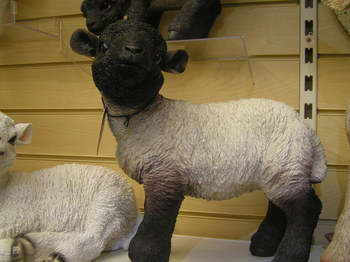-
Horse Riding near Betws-y-Coed
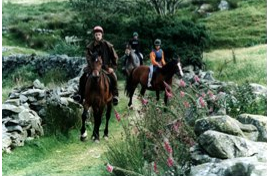
-
Swallow Falls Betws-y-Coed
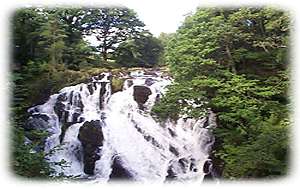
SWALLOW FALLS (RHAEADR EWYNNOL) This waterfall on the Afon Llugwy has become a familiar natural celebrity over the past 100 years and has featured on film, postcard and canvas. While its principal viewpoints are situated on the south bank of the Llugwy with the convenience of ample parking along the A5 and within the hotel car park, it is observed far more dramatically if approached on foot along the northern bank.
-
Maps of Betws-y-Coed

Click here website link to enlarge map
The construction of Betws-y-Coed railway station in 1868, heralding the arrival of the railway line from Llandudno Junction railway station, resulted in a marked population growth. -
Activities in Snowdonia
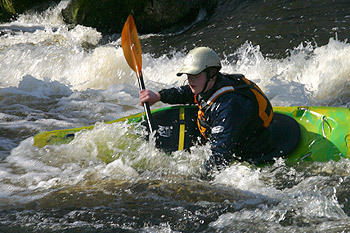
Click here to see accommodation availability in the area
What you would get if you where to give the smartest recreation designers limitless resources and a brief to produce an area that has access to every kind of outdoor activity suitable for all ages and all levels of experience? The answer is North Wales and Snowdonia; there are activities to suit all tastes.
What is more important it is all perfectly natural and has not cost anything to create. If you have energy to expand then try climbing, walking, mountain biking, canoeing, horse riding, cycling, windsurfing, diving, white water rafting, running, or sailing. Maybe you prefer something a little more sedate such as painting, golf, fishing, country dancing, photography, group singing, or a spot of basket weaving!!!!! -
Mountain Biking in the Gwydyr Forest
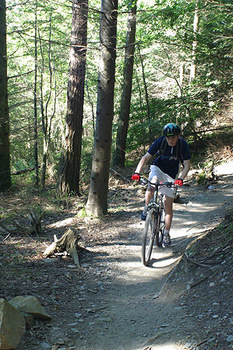
Whichever you choose, cascading waterfalls, crystal clear lakes, awe inspiring mountain vistas and forgotten river valleys deep in the Gwydyr forest provide a stunning scenic backdrop.
Betws-y-Coed itself is packed with cafes, restaurants, pubs and outdoor shops as well as an excellent bike shop and a wide range of accommodation in the town and local area. -
Welsh Love Spoons

The young man would spend hours carving the spoon with his own hands, in the hope that the girl would accept it. If the girl accepted the spoon, she would demonstrate her interest in him and they would commence on a relationship, which is the origin of the word 'spooning'.
Young men had a lot of time on their hands during the long winter evenings, and while some would turn to poetry or composing songs, others would carve all kinds of things such as kitchen utensils or toys for the children from spare pieces of wood.
It is easy to imagine a young man after a hard day's work, in a period of no radio or television or cars, spending his leisure time during dark evenings carving a spoon for the girl he loved. Spoons could also suggest food on the table, and a cosy family life, which would impress on the girl his ability to care for her and a family.
The Log Cabin/Caban Coed
Betws-y-Coed
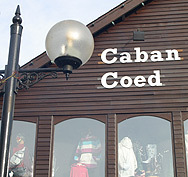
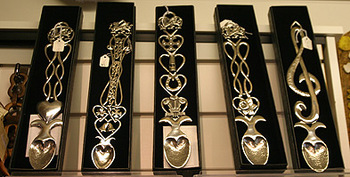
Welsh love spoon centre, quality clothing and gifts.
